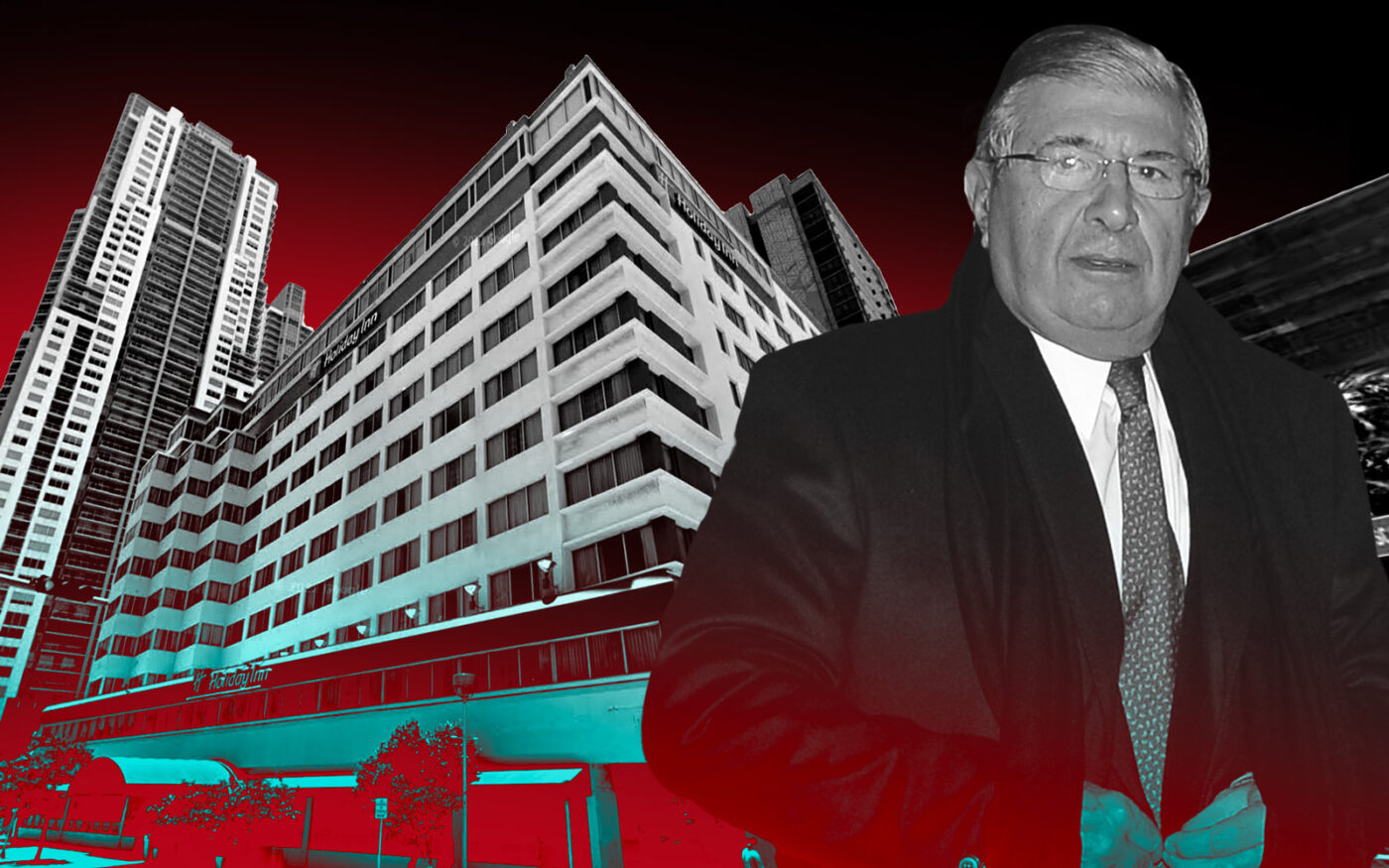The Holiday Inn Port of Miami-Downtown is headed to a foreclosure auction.
Lender Cirrus Real Estate Partners filed a Uniform Commercial Code foreclosure against the landlord tied to a $70 million loan on the 200-key hotel at 340 Biscayne Boulevard in downtown Miami, according to a public notice Cirrus filed last month. The auction is scheduled for next Tuesday.
In a UCC foreclosure, an auction is for the interest in the limited liability company that owns a property, and not for the building itself. In this case, the auction will be on the interest in the Holiday Inn’s owner, 340 Biscayne Owner LLC. The entity is primarily led by Brazilian investor and developer Gilberto Bomeny.
Bomeny was a development partner in the Zaha Hadid-designed One Thousand Museum condo tower in downtown Miami and the Regalia Residences condo in Sunny Isles Beach.
The LLC 340 Biscayne Owner isn’t giving up on its asset.
The entity “is in the process of refinancing the outstanding debt on the property, which will resolve the open issues with the current lender,” said Linda Jackson, an attorney for 340 Biscayne Owner.
The 10-story hotel, completed in 1950, has long been slated for redevelopment. In 2014, the city approved an Arquitectonica-designed 935-foot tower with 400 residential units, 240 hotel keys and 516,000 square feet of offices and retail. The project never got built.
The LLC 340 Biscayne Owner bought the property for $65 million in 2015 and a year later sold it to Aventura-based Kawa Capital Management for $42.5 million, according to records. The deal was a sale-leaseback, with 340 Biscayne Owner leasing the building from Kawa. (Since then, Kawa Capital has pulled out of the property and no longer has an ownership stake, a company representative said. Records show a termination of the hotel lease between Kawa and 340 Biscayne Owner.)
The UCC foreclosure is hardly the first trouble for 340 Biscayne Owner.
It filed for Chapter 11 bankruptcy in 2021, but secured court approval for its reorganization plan in 2022, records show. That same year, the property was found in violation of the city of Miami, Miami-Dade County and/or state building codes, according to records.
Jackson, 340 Biscayne Owner’s attorney, said this is being resolved through the recertification process, and engineers have determined the hotel is safe for occupancy.
“The city has identified things to be addressed and 340 [Biscayne Owner] is addressing them on schedule,” she said. “It’s the normal process everybody goes through.”
Last year, New York-based Cirrus provided the $70 million financing, which consisted of a renewal of an existing $62.6 million loan and new debt of $7.4 million, according to records. The financing has a floating rate.
The Federal Reserve’s 11 aggressive interest rate hikes in 2022 and last year have led to financial woes for landlords with floating-rate loans. Those with fixed rate financing or interest rate caps are hit with higher refinancing costs and skittish equity once their loans mature.
The Fed cut the benchmark rate twice this year, but commercial loan rates have remained stubbornly high.
Over the past month, lenders filed UCC foreclosures on at least two other South Florida properties. This includes Blackstone Mortgage Trust’s foreclosure against Penn-Florida Companies over its alleged failure to pay off a $145 million loan at maturity on the 366-unit 101 Via Mizner apartment building at 101 East Camino Real in Boca Raton. Also, CGI Merchant Group, led by Raoul Thomas, was hit with a UCC foreclosure over a $48.7 million loan on the 15-story 550 Biltmore Way office building in Coral Gables.
Penn-Florida and CGI Merchant each said they are working to resolve the foreclosure filings.
As for the Holiday Inn, it’s been open for business and “doing great,” Jackson said.
Downtown Miami hotel occupancy averaged about 71.1 percent this year through October, up 7.6 percent from the same period of last year, according to the Greater Miami Convention and Visitors Bureau. RevPar, or revenue per available room, a performance measurement for hotels, averaged $168.43 through October of this year, up 6.6 percent from the same period of last year.
